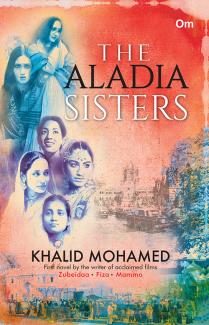ALADIA SISTERS
Khalid Mohamed started as a teenaged reviewer for the film society magazine Close-Up. He then covered crime, politics and the arts for Mumbai's Times of India from the mid-1970s on. His reviews were feared for nearly two decades for their forthrightness. Appointed Media Editor of the paper, he was next Editor of Filmfare for nearly a decade. Simultaneously, he retained his portfolio as the daily's film critic. During his 27 years with The Times of India, he reviewed television for Economic Times, besides contributing articles to the Illustrated Weekly of India and Femina. His writing has also featured in India Today, The Indian Express, Stardust, Society, international film weekly Variety and in London's Sunday Observer. Subsequently, he was associated with television film programmes Movie Mahal on Britain's Channel 4 and Portraits of Directors for Doordarshan. He was film critic for Mid-day, Senior Editor of DNA, the newspaper, and National Culture Editor and film critic for Hindustan Times. Currently, he is Consulting Editor to the Deccan Chronicle media group. He wrote To B or Not to B, a book on Amitabh Bachchan, five years ago, and translated eminent painter MF Husain's autobiography from Hindustani to English. He has written the original stories and screenplays for three Shyam Benegal films: Mammo, Sardari Begum and Zubeidaa. He wrote the original stories and screenplays and also directed the films Fiza, Tehzeeb and Silsiilay. He debuted recently as a playwright and director of the stage play Kennedy Bridge. ... Read more Read less
The Aladia Sisters by Khalid Mohamed narrates the journey of six sisters from a patriarchal Muslim family who defy societal norms. Fleeing their Haryana village, they strive to carve out their destinies amidst the backdrop of the British Raj, Partition, and India's Independence. Their stories, blending fact and fiction, are unveiled through a journalist's investigation, offering a compelling tale of resilience and ambition. Available at Sriina, you can buy this captivating book online at an affordable price. Enjoy fast shipping and secure payment options when you shop with us. ... Read more Read less











